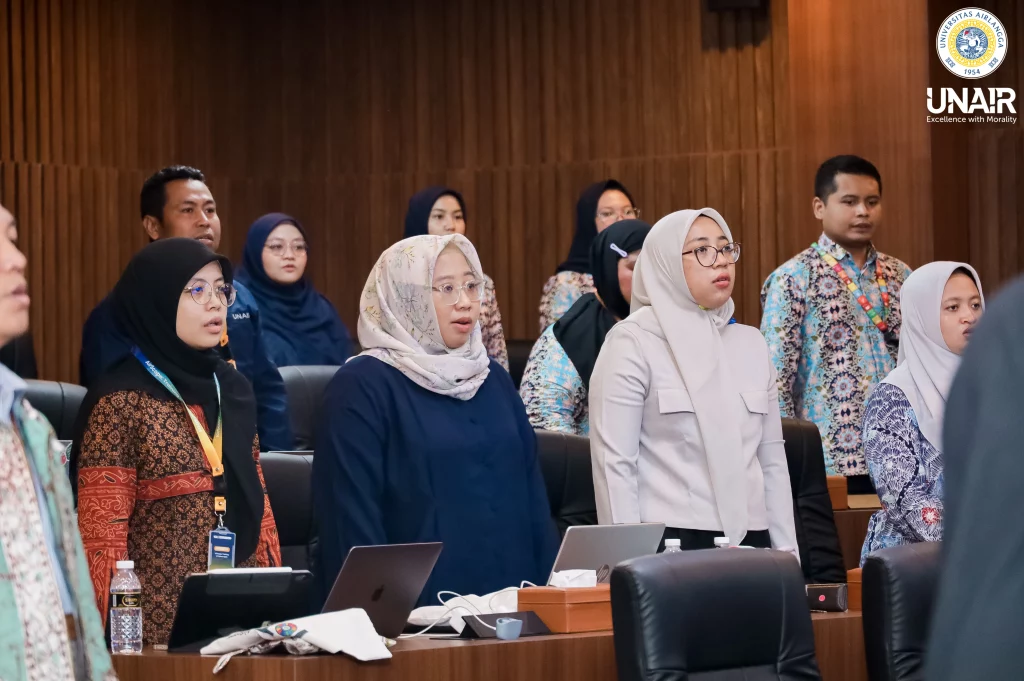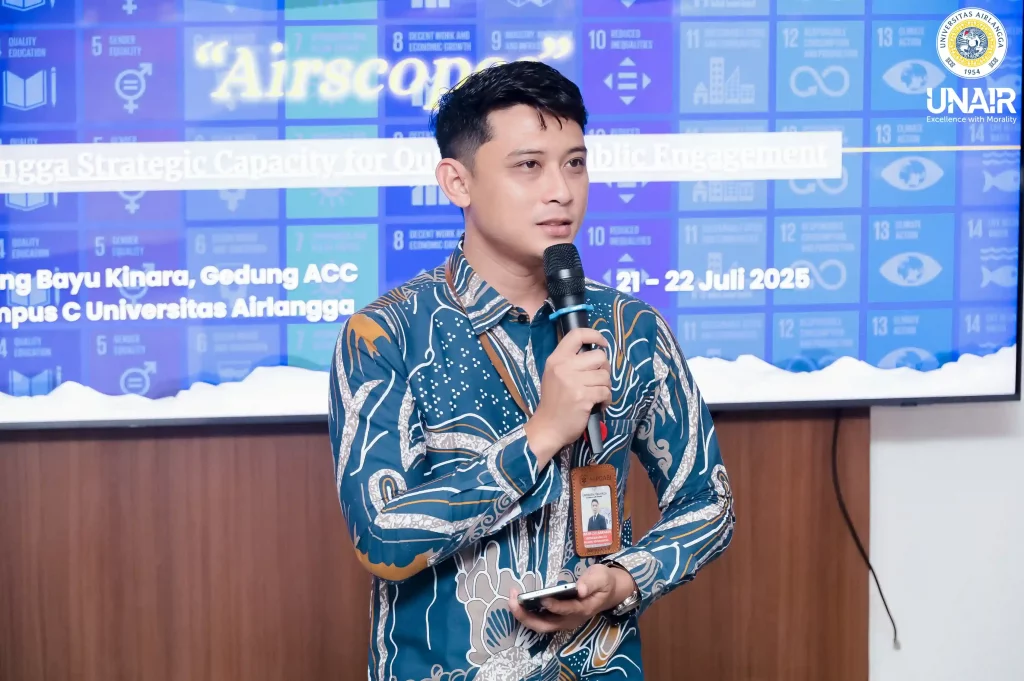UNAIR NEWS – In an effort to better equip Universitas Airlangga’s (UNAIR) academic community with the skills needed to implement the Sustainable Development Goals (SDGs) effectively, the university’s SDGs Center hosted a Training of Trainers (ToT) program. The two-day session was held from Monday (July 21, 2025) to Tuesday (July 22, 2025) at the Bayu Kinara Room, Airlangga Convention Center (ACC), UNAIR’s MERR-C Campus.
Hakim Zulkarnain, SKep Ns MSN, Secretary of the UNAIR SDGs Center, delivered the opening remarks. He noted that this event marked the third ToT organized by UNAIR. According to Zulkarnain, the training aimed to give participants a deeper understanding of SDG-related practices, especially through insights from the National Development Planning Agency (Bappenas).

“We are learning about voluntary local reporting and SDG management at the regional level. Many local governments in East Java have reached out to UNAIR regarding SDGs. Bappenas has now requested more detailed reporting from regional governments, supported by a new dashboard,” he explained.
Strengthening regional readiness
As regional governments increasingly seek expert guidance on SDG reporting, Zulkarnain stated that the ToT program is also designed to prepare participants to respond to these needs. He emphasized the importance of raising awareness and understanding reporting frameworks.
“For instance, both the Surabaya City Government and Mojokerto Regency have previously contacted us. Therefore, we aim to collaborate in providing guidance and constructive input to improve regional SDG reporting,” he added.
Academic institutions as strategic partners
Also speaking at the event was Rachman Kurniawan, Manager of the Environmental Development Pillar at the Bappenas National Secretariat. He highlighted UNAIR’s potential to scale the SDGs initiative down to the village level. “UNAIR seems well-positioned to extend its work to the SDGs Desa (Village SDGs) program—not just at the city or regency level, but all the way to the grassroots,” he said.
Kurniawan underscored three key strengths that make universities strategic allies in achieving the SDGs: their depth of knowledge, quick learning capacity, and public trust. These advantages, he noted, are vital for driving real progress.
“That’s why we’re thrilled that higher education institutions like UNAIR are contributing to this platform. Even if only 20 to 30 people are trained here, their outreach and collaboration with others can generate a snowball effect for broader SDG implementation,” he concluded.
Author: Mohammad Adif Albarado
Editor: Yulia Rohmawati









